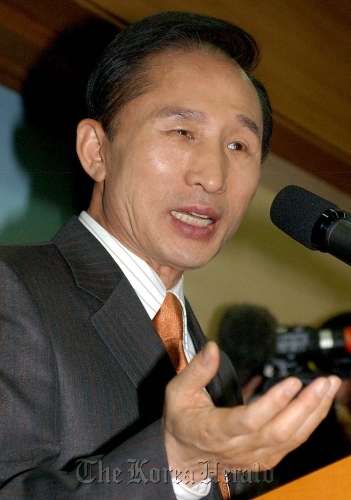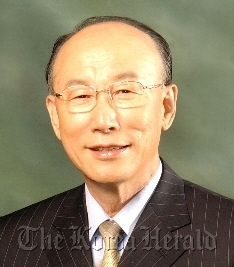Legislation to exempt taxes on Islamic bonds and tap into the Islamic finance market missed the boat again amid fierce opposition from Protestant leaders, one of whom threatened to topple President Lee Myung-bak.
The governing Grand National Party delayed deliberations on the Islamic bond bill last week, fearing conflict with religious groups ahead of the April by-elections.
Rev. Cho Yong-gi, senior pastor and founder of the Yeouido Full Gospel Church, said he would launch a campaign to force Lee to step down unless the government drops the legislation bid for Islamic bonds, or sukuk.
During a special service held at Yonsei University last week, Cho vowed to put his “life on the line” to fight Lee and his government to prevent “Islamic underground capital” from entering Korea.
Church leaders claim that the bill could help funnel funds to terrorists as sukuk investors are required to donate 2.5 percent of their income to charity and there is no way of finding out where the money goes.
The presidential office Cheong Wa Dae refrained from commenting on what Cho said.
 |
President Lee Myung-bak |
 |
Rev. Cho Yong-gi |
Lee, a devout Protestant himself, has had rifts with Buddhists and Catholics before over a budget cut for temple stay programs and the four-river development project, but now faces resentment from fellow Protestants, considered as one of his strongest support bases.
Lee Hoi-chang, leader of the minor conservative Liberty Forward Party, called Cho “arrogant” and “self-righteous” for threatening the president.
“Cho appears to think that the Protestant community can bring Lee down because they made him president,” Lee said in a meeting of party staff Monday.
“Launching campaigns to vote against lawmakers or force the president out of power is an unconstitutional political intervention and runs counter to the Christian spirit.”
Other religious groups have not stated their positions on the sukuk bill.
Ven. Wondam, spokesman of the Jogye Order, the nation’s biggest Buddhist sect, said he had nothing to say about the issue.
“The bill is not a religious issue. It is a matter of the country’s economic policy and is therefore not an area in which religions should intervene,” he said.
Cho on Sunday expressed regret over his remarks, saying he never meant to talk about Lee’s resignation.
“I simply meant to stress that the inflow of Islamic capital would ultimately pose great danger to the nation and the society,” Cho said in a statement.
“It is highly regrettable that it was reported as if I officially declared a campaign to force the president out of power over the sukuk bill.”
As Islamic law forbids charging or paying interests, sukuk bond holders are offered dividends or property leasing profits instead as compensation. Therefore, sukuk investors are subject to value-added and capital gains taxes under the current Korean law. The bill in question is aimed at treating sukuk like conventional bonds.
The Ministry of Finance and Strategy submitted the Islamic bond bill to the National Assembly in 2009 aiming to tap funds from oil-rich Middle Eastern countries.
The bill became more important after a Korean consortium won a nuclear power plant deal from the United Arab Emirates. If enacted, the bill would help Korean companies doing business in the region raise funds at low costs by issuing Islamic bonds.
A Cheong Wa Dae official said the government will continue to persuade those who misunderstand the bill.
“The ruling party never intended to railroad the bill, and we knew the Protestant community’s opposition would be a major obstacle,” she said.
“The government will continue efforts to convince those who misunderstand the bill.”
By Kim So-hyun (
sophie@heraldcorp.com)








![[Today’s K-pop] Blackpink’s Jennie, Lisa invited to Coachella as solo acts](http://res.heraldm.com/phpwas/restmb_idxmake.php?idx=644&simg=/content/image/2024/11/21/20241121050099_0.jpg)
